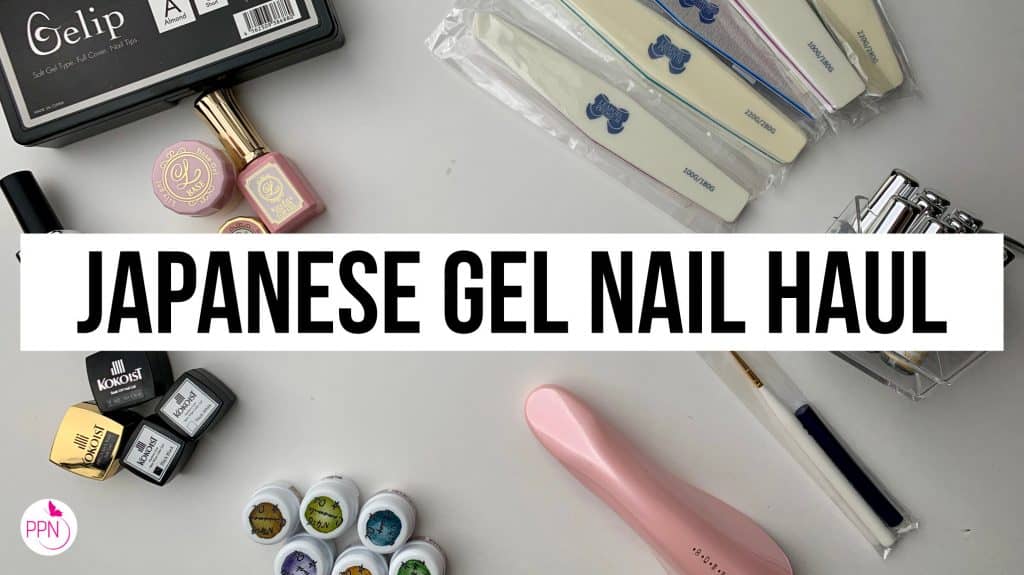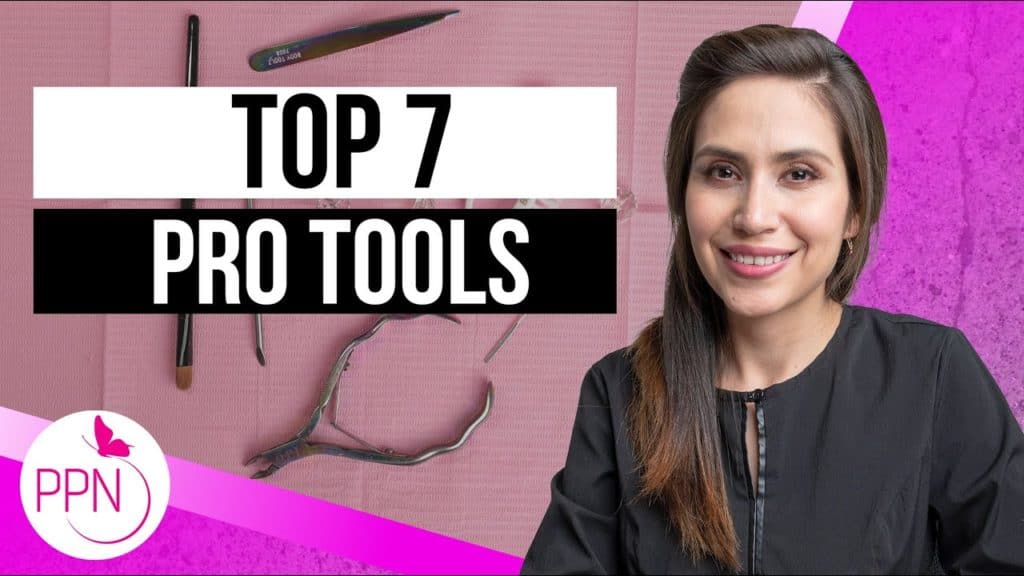Not all products are created equal.
With more clients wanting more for their money, there is no better time than now to make clients care about the products you use on them.
You see, if YOU personally don’t just buy any junk to apply on your clients, and you go out of your way to learn about the products you use, your client needs to know what makes your products special.
And it is a disservice to your business not to educate your clients on the quality of products you’re using on them. (You don’t necessarily have to lecture them on their visits, unless they’re curious enough to ask. The best place to sneak this valuable information in is to put it in the place where your clients are booking you! This can add convincing value to them to make that appointment with you.)
Let’s get into today’s topic: Making Clients Care About The Products You Use On Them

Products that offer an option to be educated on, with a certification course, are often some of the highest-quality products you can choose to use. A certification course is one of the more weighty factors in determining the caliber of your products. But as much as I love me a certification course, this is not the end-all-be-all factor.
Along with a product certification, here are a few more factors to weigh when looking for a quality brand to work with…
🟠No. #1 Good history: Simply do a Google Search with “your brand of interest” followed by the word “allergies” as this is typically the most adverse reaction one can experience from a gel nail product. You’re not looking for a one-off instance, but rather an alarming chain of “me-too”s.
I will say that an improperly cured gel is the number one way to suffer an allergic reaction.
Improper cure most often happens because of 1. a poor quality or old curing unit, 2. Applying the gel too thick where the light cannot penetrate through the color, and/or 3. A poorly developed product (which is my next qualification in this list).
If you find that a brand has had controversy around safety, I PERSONALLY would wait a few years for things to get re-calibrated before choosing them as a go-to brand. And then continue with the factors I’m listing in today’s topic. Just me. I do believe in second chances when there is a good faith effort to improve or do right.
Another key factor to having a “good history” is to consider the amount of years in business a company has. I would be more comfortable investing in a brand that has been in good standing for 10 years, then one that just launched last year.
🟠No. #2 Manufacturing model: Sometimes brands own their manufacturing, other times they reach out to these brands that already do their own manufacturing to manufacture their gel nail products (this is often known as private labeling, or OEM depending on how much control the client wants in the manufacturing of the products), and other times, brands find a manufacturer at random to make them their products.
In my expert opinion, the highest quality products are from companies that own their own manufacturing and work with their own chemists. Which is why in this channel, you’ll often only see me use brands that I know own their manufacturing.
This should be the thing that makes your nail products absolutely special, and you should not hesitate to rave with your clients about the fact that your gel nail products are manufactured from scratch in their country of origin alongside their own chemists!
Non-Fun-Fact: I know more about my nail products than my supplements and skin care!
🟠No. #3 Ownership transparency: I love me a founder face!
I really enjoy reading a brand’s story, and if I can get a face or a few, of the ownership, the level of trust just grows for me, exponentially. It says to me, “I’m putting my name and my face on these products, my integrity is riding on them.” That is a huge wager to take. (This is why I also personally do not affiliate myself with just any brand, paid or not. As an “affiliate face” to the brands I promote, my integrity is just at stake as that of founders. I cannot, will not, let you down, when things are in my control to research.)
If you know any fun-facts about a brand or if they are family-owned and operated, share these gems with your clients to spark their interest and appreciation of these products.
🟠No. #4 Ingredients: This can be tricky for us to understand as we’re not chemists (assuming here).
But let me just say, that ingredients mean very little if you personally are not suffering from a known ingredient yourself.
The truth is that most nail products nowadays are free of all of the toxic chemicals we didn’t know were in our nail products prior to the internet/information boom. I would tie the quality of ingredients to:
- The country of source
- Knowing that products or ingredients have been third-party tested, when brands don’t manufacture their own gels, and
- 3. My ability to readily get Safety Data Sheets from the brand as a professional.
After that, I would review the Safety Data Sheets to ensure that my monomer concentration is under 35%* (the percentage industry scientists suggest to reduce sensitivity and achieve a proper cure), and take a peek at how many toxic chemicals they avoid; some examples include formaldehyde, xylene, and toluene.
HEMA is a monomer, and the most common found in gel nail products. Because of this, and its improper use by users and manufacturers of gel nail products, unfortunately lots of people have developed an allergic reaction to it. Properly operated and cured gel nail products that contain HEMA do not pose a risk to healthy individuals. If you have a known allergy to HEMA, avoid it completely.
I have used products with HEMA-monomer in them on myself and clients for 8 years. Because I use the highest quality products available to me (remember, those manufactured from scratch alongside their own chemists), I cure everything properly, protecting myself and my clients from adverse effects.
🟠No. #5 Accessibility: Can anyone buy the products? Or only qualified nail professionals? Hmm… There are great products out there that do not require a license to purchase. Also, do note that not all countries require a license to operate as a nail technician, and up until 2021 or so neither did a couple of states in the US.
I don’t believe that a licensed professional is safer using gel products than an individual that actually takes the brand’s certification. I’ve also seen products that have been under serious scrutiny in the past, that now, years later, are labeled “pro” only and require a license to purchase. (Literally after making their millions from all users licensed or not.) But yes, if a brand is for verified pros only this IS a good strong sign that the products are of higher quality and that the primary care and interest of the brand is for the nail pro.
Another good quality is when brands own their distribution and fulfill orders themselves, rather than selling only wholesale nail suppliers.
I guess where I draw the line is if brands start becoming available on Amazon. Amazon is primarily for the general public, not for nail pros. I believe that if brands make it to places like Amazon, the brand has lost care and interest for the nail pro and even the safety of the consumer.
Would I want professional grade products to be for verified pros only? I don’t mind either way, as I do believe serious DIYers who cannot yet afford or want the commitment of a 4 or 5 figure nail program should have access to quality education and responsibly manufactured products.
So let’s bring it back to delighting our clients with our products…
To build interest with your clients about the products you use on them, point out that the products you use on them cannot be obtained by anyone and everyone on marketplaces like Amazon, and, if applicable, that they even require certification or licensing to purchase.
🟠No. #6 Durability: This is as simple as, do the products last and wear well?
Lower quality products may not cure properly even with their own lamp. That is because they are formulated improperly or with low quality resins. I also find that high quality brands tend to care about reducing the chemical smell of their formulas. I remember bringing this up with one of the brands I am affiliated with. I simply commented on the strong smell their top coat had (this was an award winning top gel BTW) and without even letting me know, they managed to remove the smell foreva’!
So if your products last 3+ weeks and/or are low odor, detail this fact in your communication, or in that place where your client books their appointment.
Do you now see how fantastic the products you go out of your way to curate to service your clients are? Why would you hide any of these 7 factors for identifying a quality premium gel nail brand? Share them all, share them often.
All of the brands you’ll ever see me use on this channel are and will continue to be vetted to ensure they fit the bill in all of the factors covered today.
For a break down of my three favorite brands and which I recommend for my signature MGN Course, check out my comparison chart here.
🟠To recap, these points are:
- A good track record, and have been in business for at least a couple of years.
- The manufacturing of their products. Do they manufacture their own?
- Ownership. Who owns the products? Why did they choose to develop, or start their own brand when there are already great brands out there?
- Transparency in ingredients
- Are they for trained users only?
- Do they last long and are they low odor? And lastly,
- Can you train in the products via a certification?

Content written by Paola Ponce
Loved this blog? Then I think you’ll love learning more about my journey as a specialized gel nail solopreneur in the nail industry. Click here to get instant access to my free masterclass. These blogs are copyrighted material, and any use of this blog is not permitted without written concern first. Some of these blogs contain affiliate links that give us a small commission when qualifying purchases are made. Thank you for being so supportive, which helps us to continue creating valuable resources and content like this.


